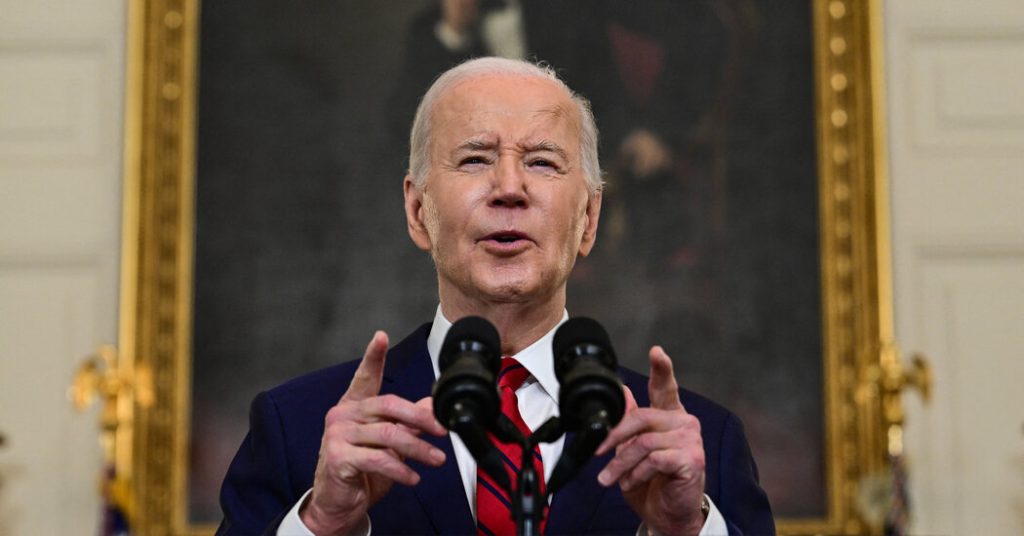The president’s national security adviser, Jake Sullivan, faced questions about whether Hungarian Prime Minister Viktor Orban is a dictator, but declined to give a definitive answer. He expressed concerns about Hungary’s assault on democratic institutions but suggested directing questions to the Biden campaign. Heather A. Conley of the German Marshall Fund of the United States noted Orban’s involvement in American politics, attending events and expressing support for Trump’s return to power. She highlighted the implications of labeling Orban a dictator, including potential foreign policy consequences such as being placed in a penalty box like Greece under military junta from 1967 to 1974.
Recent comments made by President Biden about his uncle’s supposed encounter with cannibals during World War II sparked controversy. Biden mentioned that his uncle was shot down in New Guinea and faced cannibals, but Pentagon records do not support this claim. The report indicates that the plane carrying his uncle crashed due to engine failure, leading to his disappearance and presumed death along with two crew members. The lack of evidence for the cannibal narrative has raised questions about the accuracy of Biden’s story and its potential impact on his credibility.
The debate surrounding Orban’s leadership and Biden’s storytelling highlights the intersection of domestic and foreign policy issues. Orban’s actions in Hungary have raised concerns about democracy, leading to calls for a stronger stance from the United States. Biden’s recounting of his uncle’s wartime experience has drawn scrutiny for its historical inaccuracies, prompting discussions about the importance of truthfulness in public statements. These incidents showcase the complexities of political communication and the potential consequences of inaccurate or misleading information.
The diplomatic implications of labeling Orban a dictator could have far-reaching effects on Hungary’s relationship with NATO and other international partners. If Orban were officially designated as a dictator, the country might face isolation or sanctions until the dictatorship ends. This underscores the importance of accurate assessments of political leaders and their adherence to democratic norms. The situation in Hungary is part of a broader trend of democratic backsliding in certain countries, raising concerns about the erosion of democratic values and institutions globally.
The involvement of the Biden campaign adds another layer of complexity to the discussion, as political considerations intersect with foreign policy issues. Sullivan’s reluctance to label Orban a dictator reflects the delicate balance between diplomatic language and political realities. The role of organizations like the German Marshall Fund of the United States in promoting democracy and fostering transatlantic partnerships underscores the challenges of navigating complex international relationships. The need for clear communication and informed decision-making in addressing democratic backsliding and other global challenges is vital for maintaining stability and upholding shared values.
In conclusion, the incidents involving Orban’s leadership in Hungary and Biden’s storytelling about his uncle’s wartime experience highlight the complexities of contemporary politics. The potential impact of these events on foreign relations, democratic norms, and public trust underscores the need for careful consideration and accurate information in political discourse. Balancing domestic and international concerns requires a nuanced approach that takes into account the complexities of modern diplomacy and the challenges of addressing authoritarian tendencies. By addressing these issues thoughtfully and responsibly, policymakers and the public can work towards upholding democratic values and fostering stability in an increasingly uncertain world.


